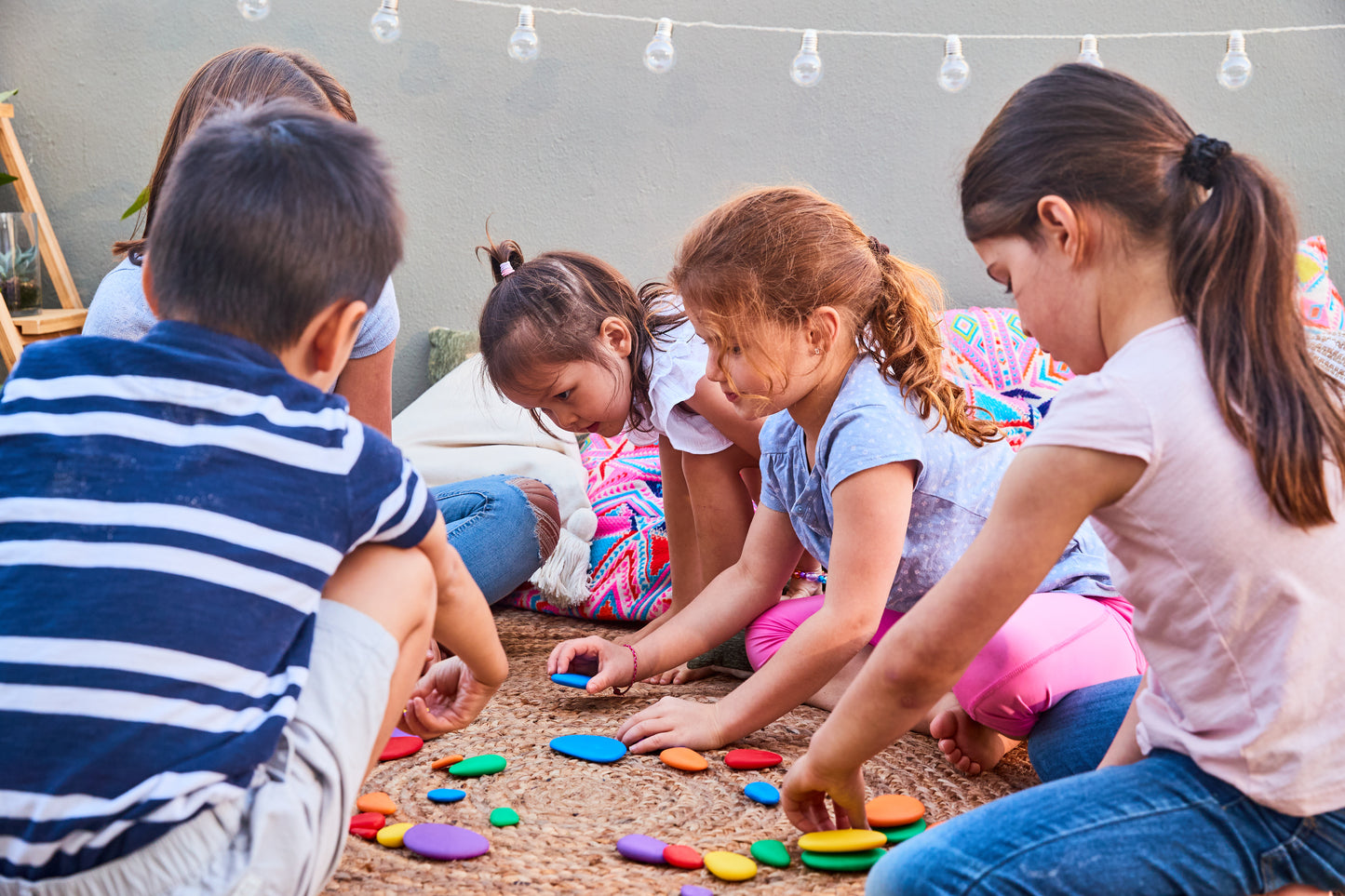
We are all embarking on a new adventure together as a family at every stage of development. Playing and learning at home might seem time-consuming, but let’s put it into perspective.
Children spend only a fifth of their waking hours at school. The rest is spent with family, friends, and their surroundings outside the classroom. This extra time is a golden opportunity for parents and caregivers to enrich their children’s learning experiences and complement formal education.
Studies have shown that children engaged in play-based learning develop a positive attitude towards learning, a richer vocabulary, and advanced problem-solving, lateral thinking, and analytical skills.
Learning through play has long been recognised as an effective teaching method in early education, both in the classroom and at home. Fun, engaging, tactile, and visual learning activities improve concentration, fine motor skills, and early mathematical understanding, such as counting and sorting techniques.
Here are five tips to turn home learning into a family adventure:
- Self-Motivation
Creating a positive environment around activities your child enjoys makes life easier for everyone.
Motivate your children by following their interests, whether they are cars, books, blocks, colours, shapes, the garden, or dinosaurs. Observe your child’s play to see where their intrinsic motivation lies. This is where the adventure begins.
- Experience
While schools provide curriculum-based knowledge, our personal experiences form the foundation of learning, known as experiential learning.
Children are naturally curious about the world around them. Make learning a hands-on, fun, and engaging experience. Explore nature and explain life cycles, examine numbers (addresses, money) and discuss their uses and benefits in everyday life.
- Play
Play-based learning develops key foundation skills. Observe your child building a tower or playing with water. Notice their facial expressions: are they focused, curious, engaged, or frustrated?
A child’s imagination thrives on play. They enjoy exploring and experimenting, which we call learning without realizing. Encourage this at home using open-ended toys like multi-coloured Rainbow Pebbles® or different-sized construction activities to foster problem-solving and design thinking. Ask questions or give themes, such as building the tallest tower or designing a type of transport.
Hear from Educational Experts
Watch the Edx Education video to learn about the benefits of play-based learning from experts around the world.
- Prior Preparation
When children aren’t in the mood to play independently, you can set up simple activities. For example, create a jungle scene with stuffed animals to complement a book you’re reading. Discuss the story and prompt their imagination.
Preparing activities in advance means you’ll be ready as the day unfolds, making transitions smoother and keeping children engaged.
- Managing Expectations
With busy schedules, it’s important to carve out time each day to spend with your child. Let them know when you will be available. Setting expectations, like telling your child you have ten minutes to play, helps manage their anticipation.
Setting up a play activity, talking about their day, sharing a meal, or simply watching them play are all valuable. Let your children know you enjoy this time too.
Establishing routines, like reading a book before bed, helps develop speech and language skills, fuels curiosity, and strengthens the bond between parents, caregivers, and children.
Incorporating Edx Education’s construction toys into these activities can further enhance learning. These toys are designed to stimulate creativity and cognitive development, making them ideal tools for play-based learning. By building structures, solving problems, and creating imaginative worlds, children can learn essential skills while having fun.
Embrace this adventure of playing and learning together as a family. With the right approach and tools, such as Edx Education’s construction toys, you can turn everyday moments into enriching educational experiences.



